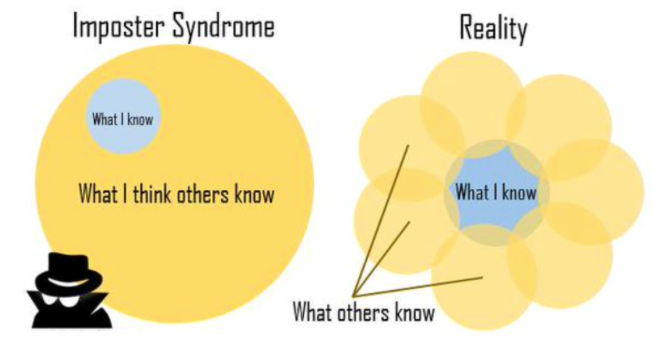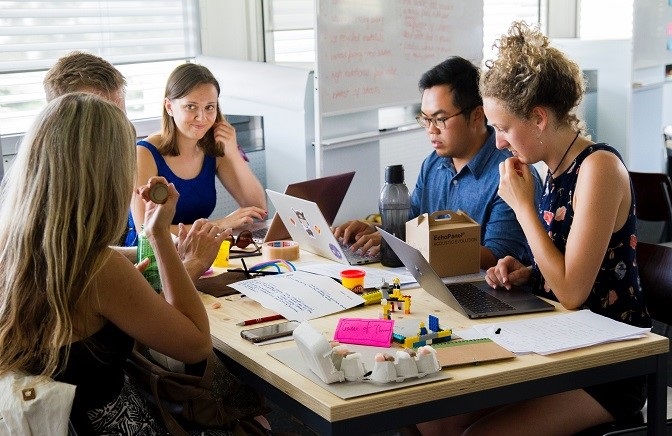Gina Thorne: Hi, everyone. Welcome to the Harmony Foundation Podcast Series, and I’m pleased today be joined with Brittany Dekoch?
Brittany DeKoch: Decook.
Gina Thorne: Decook? Nice to have you here, with Highlands Behavioral Health. We also have Claire here who’s the Director of Intake, but she says she’s not going to speak very much today.
Claire: It’s [inaudible 00:00:15]
Gina Thorne: She’s going to keep herself kind of quiet. I have a feeling we’re going to get something out of you today. Both are representing Highlands Behavioral Health System, and it’s really great to have you both here today. Before we get into talking about Highlands, let’s talk for a few minutes about your backgrounds and how you got into the field of behavioral health.
Brittany DeKoch: Absolutely. This is Brittany. I think even from a very early age I spent a lot of time trying to make sense of the world around me and I’ve always been very fascinated in human behavior and why we do the things that we do. I think that it goes … it’s sort of not a surprise that then when I went to college, my degree is in psychology, and I went on to get my master’s in counseling. Before I moved to Colorado, my background’s in youth homeless and runaway services. I did a lot of therapy with those individuals and their families. I’ve also worked in community mental health, and then most recently I’ve been a crisis assessment clinician in the emergency room.
Brittany DeKoch: Stepping into my role as a community liaison for Highlands … obviously, no longer in direct care … but I really welcomed the new opportunity to serve as an advocate for the behavioral health community and to be able to connect people to treatment.
Gina Thorne: Mm-hmm (affirmative). And it’s important because so many people are struggling with finding the right resources.
Brittany DeKoch: Absolutely.
Gina Thorne: Having the right person who’s compassionate and empathetic is vital.
Brittany DeKoch: Yeah.
Gina Thorne: Yeah. Highlands Behavioral is an 86 bed psychiatric hospital and it treats adolescents and adults. On your website, you talk about this concept called the Navigation Passport. Can you describe what that means to patients coming to highlands?
Brittany DeKoch: Yeah. What I think is unique to Highlands is our Navigation Passport because it was developed by our clinical team. It really serves as not only a guide, a journal, a resource, but it helps the individual while they’re in the hospital, sort of check in, to know what’s going to happen next. But it also serves as a record outside of the hospital so that someone can take this tool back to their primary care provider or their outpatient therapist and say this is what my treatment was like at Highlands. These were some of the goals I was working on. To continue that therapeutic process and set them up for success outside of the hospital.
Gina Thorne: Mm-hmm (affirmative). And it’s great because we need more of those types of services to provide that sort of warm transfer so that clients can find the next level of care.
Brittany DeKoch: Right. I think that some feedback that we get in the community is that a lot of individuals have disjointed services or services all over the place, and so the Navigation Passport serves as this connector for an individual, and especially an individual that’s been in crisis. It can be hard to keep all that information at the forefront of your mind [crosstalk 00:03:04].
Gina Thorne: I think it’s for anybody, but especially for people in crisis. I know I struggle with that for sure.
Brittany DeKoch: Yeah. I like to call it a planner.
Gina Thorne: That’s a great way to-
Brittany DeKoch: A counseling planning.
Gina Thorne: Yes. It’s great. Well, I’m going to actually turn over here to Claire for a second and ask you a question.
Claire: Certainly.
Gina Thorne: You are the Director of Intake. What are some of the most common issues that you’re seeing who are coming into Highlands? What are some of the people’s struggles and what are you … what’s more readily available or seen in your calls that are coming in?
Claire: Excellent question. In psychology and psychiatry, it remains diverse. We see anything from acute suicidal, the depression is extreme. We also see … there seems to be an uptick in psychosis, mood instability, mood disorder. So it’s hard to answer the question. It’s just the full gamut. We also are seeing more and more people presenting with what we would call co-occurring phenomena with dual substance abuse and underlying psychiatric concerns and symptoms. I don’t know how else to answer that.
Gina Thorne: I think it’s great. It’s true, because we’re seeing a lot of the co-occurring coming in more regularly here at Harmony, as well, and in cases where we can’t treat the higher acuity mental health, that’s why we love to work with Highlands, because we treat addiction as primary and we recognize that both the co-occurring, the mental health and the addiction, often go hand in hand. But when you’re talking about some of the significant schizoaffective, depression, bipolar, anxiety issues that are coming up, there are facilities that don’t have the infrastructure to support that.
Claire: Correct.
Gina Thorne: So it’s great that you all are available for the community. I always like to learn about the people, not just about your program, and so I threw in a question that I thought would be really interesting to ask. And I’m going to give Claire a couple minutes to think about it, but I know that Brittany’s probably thought about it already.
Brittany DeKoch: Oh, yeah.
Gina Thorne: What purchase of $100 or less has most positively impacted your life in the last six months or in recent memory?
Brittany DeKoch: Mine’s a little bit of a shameless self-promotion. Since I’ve moved to Colorado, I’ve volunteered a week every summer with an organization based out of Golden called Big City Mountaineers. Big City Mountaineers partners with youth serving orgs in the Denver area, specifically kiddos that are at risk, underserved, very much live city life and don’t have an opportunity to get outside and go backpacking.
Brittany DeKoch: What we get to do is take kiddos out on their first ever backpacking expedition, which is really fun. I very strongly believe that the wilderness holds a transformative power. I think a lot of us that have moved to Colorado from other places, that’s a big indicator as to why we moved her, and so I like being able to share that with kids that would otherwise not have that opportunity.
Brittany DeKoch: This year I’ve decided to be part of a summit for Someone Program, which is a fundraising program through Big City Mountaineers. A team of seven other adults and myself will be attempting to summit Mount Baker in Washington in July.
Gina Thorne: Where is that? Where is it? Washington state?
Brittany DeKoch: Washington state.
Gina Thorne: Okay.
Brittany DeKoch: Yeah. It’s a glaciated volcano. It’s going to be really exciting.
Gina Thorne: Wow!
Brittany DeKoch: I’ve obviously paid an entry fee to secure my spot on that team and to start my fundraising process. And that is the purchase that I’ve made recently that really speaks to me.
Gina Thorne: That’s fantastic [crosstalk 00:06:46] and can you give a website for Big City Mountaineers?
Brittany DeKoch: Yeah. I believe it’s www.bigcitymountaineers.org. However, if you just went to Google and typed in Big City Mountaineers, it would pop up. If anyone feels compelled that’s listening to this wants to donate to the organization, feel free.
Gina Thorne: Great, especially for you.
Brittany DeKoch: It’s a nonprofit.
Gina Thorne: Yeah, especially … so they can support your climb up the mountain, Mount Baker.
Brittany DeKoch: Yeah, absolutely.
Gina Thorne: Is that 14,000 feet?
Brittany DeKoch: Not quite. It’s almost 11,000 feet.
Gina Thorne: 11,000, okay.
Brittany DeKoch: Yeah. But there will be snow travel.
Gina Thorne: Oh, my goodness. Well, that’s a great-
Brittany DeKoch: It’ll be exciting.
Gina Thorne: … a great investment. Great investment.
Brittany DeKoch: Thank you.
Gina Thorne: Amazing. Yeah. How about you, Claire? Did you have anything to add to that? Any purchase that you’ve made of $100 or less that might have-
Claire: I’ve tried to think if I’ve purchased anything since moving to Colorado.
Gina Thorne: That’s fair. That’s fair.
Claire: Yeah, I think the best purchase has probably been a tank of gas to get to explore Colorado.
Gina Thorne: Oh, I like that. Good. Yeah.
Claire: [crosstalk 00:07:47] probably more than 100 bucks, but, in the last six months, it’s to be able to explore the … come up to Estes Park, go to Boulder. I’m brand new to the state.
Gina Thorne: Yeah, that’s a great answer. Especially on the fly like that. Good job.
Brittany DeKoch: Yeah, way to go.
Gina Thorne: Yeah. So Brittany, playing off of the idea of the word harmony, what do you think it means to live a life in harmony?
Brittany DeKoch: I think that living a life in harmony is being congruent in your thoughts, but in as well as your actions. Making sure that who you are inside and being the best, most authentic version of yourself is also who are presenting to the world. And I think that a big component of that … it’s very easy to turn inward and be self-reflective and focus on our own personal growth, but I also read somewhere that you’re only good as the company you keep. Paying attention to who makes up your community. And so I think that if you’re surrounding yourself with good people, it’s easier to feel like you’re harmonious in your life.
Gina Thorne: Mm-hmm (affirmative). Mm-hmm (affirmative). Great answer. Thank you for that. That’s great. And if someone wanted to access services of Highlands Behavioral Health, how could they get in touch with you?
Brittany DeKoch: They could actually call our intake line directly, 24 hours a day, seven days a week. The phone number is 720-348-2805. And just by making that call, they’ll be connected to a clinician that can help facilitate the process from there.
Gina Thorne: Wonderful. Well, thank you both for taking the time to come up to Harmony. We’re really glad to have had you here. And we look forward to continued future partnerships with Highland Behavioral.
Brittany DeKoch: Likewise.
Claire: Thank you so much for having us.
Brittany DeKoch: Thank you.
https://www.highlandsbhs.com/





